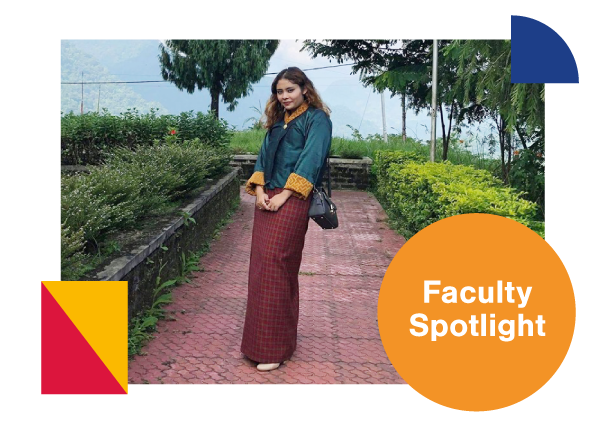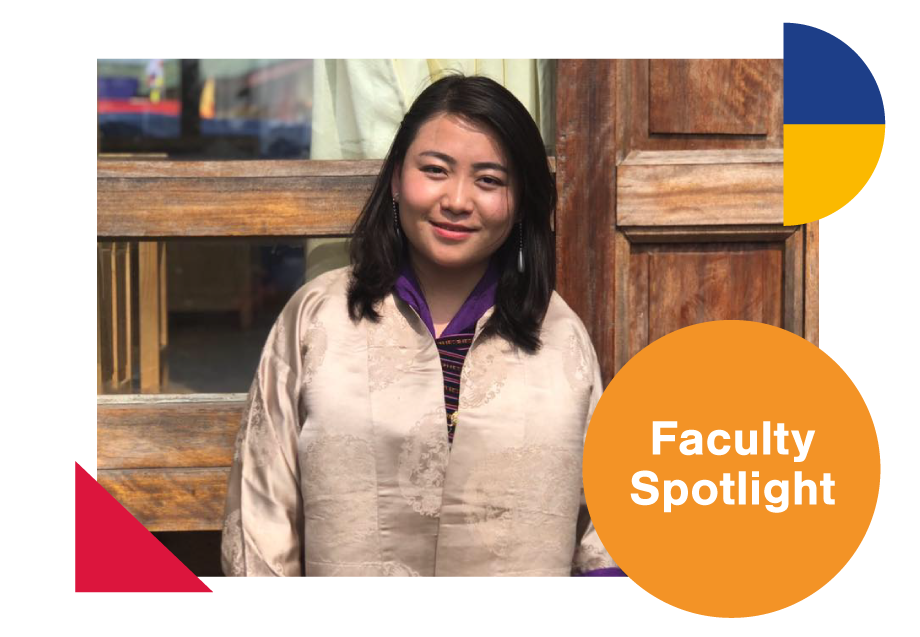Who are you and what do you do?
Kuzuzangpo, I am Srijana Gajmer, a faculty for the Electronics and Communication Engineering Department, in Jigme Namgyel Engineering College, Royal University of Bhutan. I have been a part of tertiary education in Engineering, since the last four years.
What are your initial impressions about Problem Based Learning?
The PBL project came as a subject of curiosity and opportunity to learn, relearn and to apply its principles in my own teaching journey. My perception of PBL was that of a process of development of self-learning pedagogies and methods, and enhancement of learning skills, rather than venturing into a subject directly. I realised that there was a neat resemblance between my initial perception and the essence of PBL itself.
Typically, in challenges involving Engineering solutions, the conventional method has always been problem-solving, but Problem Based Learning provided me with skills to concretely understand a problem from a human-centric approach, to assess possible outcomes and understand the problem in a holistic manner. The Problem Based Learning journey has helped me to get involved in multidisciplinary teams, prompt contribution and solution-building processes in each member, ideate, test those ideas and communicate them.
How do you plan to include Problem Based Learning in your teaching?
I regard PBL as an essential tool that is applicable throughout the spectrum of learning, cutting through all disciplines of study, from Engineering, management, humanities, design, social sciences, to name a few. PBL as a tool may help students to deeply learn a subject and get a hold of the spirit of the problem. The process of applying PBL approaches is user-defined and the outcome and quality of solution are satisfactory. I wish to include PBL concepts and methodologies in the projects, assignments and group works that I will assign to my students. The PBL approach promises to create motivated learners, giving ownership of problems and solutions to the students. Hence, my aspiration is that PBLwould be successful in keeping students actively engaged and involved in an effective manner. Its methodologies would inspire students to be creative and more inclusive in their approaches.
What are your expectations for the PBL South Asia project?
The PBL South Asia project could be a path breaker in Asia in establishing a cleaner, modern teaching-learning pedagogy that would encourage a shift from traditional classroom approaches towards modern and contemporary methods. Since there is a difference between learners in school settings and in tertiary education systems, the PBL approach is absolutely relevant in Higher Education systems, making me wish for it to mould better learners and teachers.
This post was written by AGI



